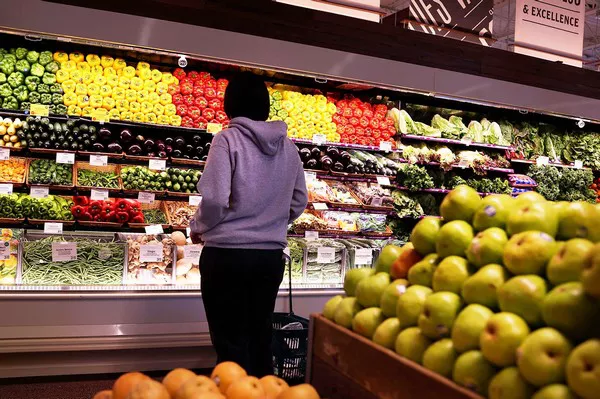New Delhi, India – The soaring prices of essential food items, such as tomatoes and onions, are pushing these staples out of reach for many families in India. Inflation, along with flooding in northern regions that have damaged this year’s harvest, has driven the prices of nearly every part of a meal to record highs. The cost of tomatoes, for example, increased from 20 rupees (25 cents) to as much as 100 rupees ($1.25), while onions rose from 30 rupees (35 cents) to 180 rupees ($2.10). This surge in prices is putting immense pressure on families’ budgets.
In July, food price inflation reached a three-year high at 11.5%, prompting Prime Minister Narendra Modi to implement measures to curb prices ahead of next year’s national election. The government has restricted rice and onion exports and has started importing tomatoes from Nepal. Additionally, it is selling some vegetables at subsidized rates within the country.
The rising prices have led many families to make difficult choices when planning their meals. In response, some are cutting back on purchases or skipping certain items altogether.
Experts attribute the price hikes to unusual weather patterns, including devastating floods in northern regions, coupled with the effects of El Niño, a periodic natural warming in the Pacific Ocean that influences global weather conditions.
For low-income families like Raj Kumari’s, who moved to the capital from a neighboring state in search of work, the escalating cost of living has made it increasingly challenging to make ends meet. Kumari and her husband work in low-paying jobs and have seen their income dwindle as opportunities for employment decrease.
To cope with the rising prices of vegetables and cooking gas, Kumari has started preparing all their meals in the morning, carefully managing ingredients to make them last. Despite these efforts, feeding her family and caring for two pet rabbits has become a daily challenge.
While the Indian government takes steps to address the issue of food inflation, many families like Kumari’s continue to grapple with the economic strain imposed by surging food prices, making it increasingly difficult to provide essential meals for their loved ones.

